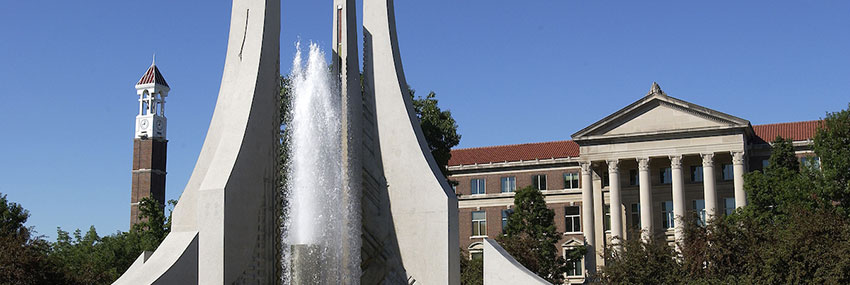Standing Committees

The Advisory Committee meets monthly during the academic year to advise the Administration regarding any matter of interest to the Administration or concern to the faculty. The conversation is confidential and minutes are not taken.
- This committee is chaired by Mark Zimpfer.
- View member list for this committee.
The EPC is concerned with, but not limited to, consideration of the following matters: improvement of instruction, grades and grading, scholastic probation, dismissal for academic reasons and reinstatement, standards for admission, academic placement, the academic calendar, policies for scheduling classes, honors programs general educational policy, general research policies, military training programs, general curriculum standards, coordination of campus and extension curricula, general academic organization, and interdepartmental and inter-institutional research and education programs.
- This committee is chaired by Vincent Duffy.
- View member list for this committee.
- Faculty committees reporting to this committee.
The Community Connection Committee provides guidance in all aspects of climate, recruitment, retention, inclusion, and equal opportunities for access and success.
- This committee is co-chaired by Patricia (Trish) Morita-Mullaney and Rua Williams.
- View member list for this committee.
The Faculty Affairs Committee is concerned with matters that pertain primarily to the responsibilities, rights, privileges, opportunities, and welfare of the faculty, collectively and as individuals. Topics in its area of responsibility include tenure, procedures for academic promotions, orientation of new faculty members, insurance and health program planning, academic responsibilities, and standards of appointment.
- This committee is co-chaired by Françoise Brosseau-Lapré and Stephen Cameron.
- View member list for this committee.
- Faculty committees reporting to this committee:
The duties of the Nominating Committee are to: Nominate elective members for all Senate committees, which may require the Nominating Committee to nominate Senators to fill Senate committee seats when too few Senators volunteer to fill all required Senate committee seats; Nominate members to the various Faculty committees, with consultation of the appropriate Senate committee; Annually solicit from the faculty information about faculty preferences and qualifications for committee assignments; Propose Advisors and their committee assignments to the Senate in accord with Sections 2.00 c and 5.02.
- This committee is co-chaired by Damon Lisch and Seema Mattoo .
- View member list for this committee.
The Steering Committee proposes the agenda for every session of the Senate. It ensures distribution of the agenda to each member of the Senate at least five days before each regularly scheduled meeting. The Steering Committee, with the assistance of the Secretary of Faculties, provides for distribution along with the agenda, a report of items being brought to the University Senate by the Steering committees, along with the action taken on each item, by vote. The Steering Committee may schedule an annual report of each of the Senate committees to the Senate. The Steering Committee requests a report from all Senate committees (and through them, their respective Faculty committees) to inform the Senate of their activities, studies, and recommendations, at fixed intervals that the Steering Committee will establish. The Steering Committee may receive communications from any faculty member or group of members who wish to present any proposal before any meeting of the Senate.
- This committee is chaired by Lisa Bosman.
- View member list for this committee.
The Student Affairs Committee is concerned with matters related to the general social, cultural, and practical welfare of all students of the University. Specific non-classroom matters of concern to this committee include, but are not be limited to, University Placement Service, intercollegiate athletics, counseling, scholarships, loans, conduct and discipline, health, living conditions, student political activities and organizations, Student Senate actions and recommendations, extracurricular activities, provision of equal rights and opportunities, and any other matters that would enhance students’ university environment for learning and living.
- This committee is chaired by Abigail S. Engelberth.
- View member list for this committee.
- Faculty committees reporting to this committee:
The University Resources Policy Committee is concerned with, but not limited, to, consideration of the following matters: planning optimal utilization of the physical facilities of the University, including buildings, the library, scientific and other equipment and educational aids; studies of staff needs, utilization, and planning; interdepartmental cooperation of improved facilities and staff utilization; and nonacademic planning, including architecture, landscaping, parking, and traffic.
- This committee is chaired by Lori Hoagland.
- View member list for this committee.
- Faculty committees reporting to this committee: